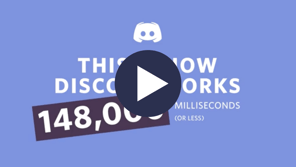- 14 May 2020
- 4 mins read
- Posted in
Have you ever considered what a strangely outdated entity an “office” really is? Thousands of people commuting on crowded trains every single morning in order to sweatily walk into a space that is designed to limit their flexibility; an often mundane corner designed to serve as a forceful reminder that “you have come here to do your job and nothing but your job” - as if most of us don’t already wake up to that realisation.
Although physical interaction with colleagues can be a great value-add to our lives, is it really necessary - or even healthy - for all of us to be bound to a seat in a confined space (usually too cold or too hot - why is there never a “normal” temperature?!) with terrible lighting, five days a week, watching the minutes of our lives tick by until we have the freedom to go home and do things in our own environment?

Of course, an Israeli-American billionaire (now turned slightly controversial, but let’s not get into that one), had that very same thought. And so the WeWork revolution was born - a modern workspace phenomenon that defined a new era of flexible working; “hot-desking” from any WeWork around the world became a thing, socialising and networking over free beer became your average Tuesday night, comfy sofas were no longer confined to swanky apartments and puppies running freely around an office - well that one just makes everyone’s life better, doesn’t it?
But co-working perks and socialising aside, are we really more productive or happier in a noisy environment with multiple distractions, with no escape from office face-time and politics? In a generation where people are already motivated, where hard and diligent work is almost engraved in our DNA, it may be time for innovative, forward-thinking businesses to go one step further. It may be time for us to cut loose any last remaining strings of traditional employment and allow people to work flexibly and remotely from wherever they choose, past the pandemic. In fact - many businesses will have no other choice but to do so, perhaps leading to the death of the office as we knew it.
None of us yet know what the new normal will look like post COVID-19; and after last Sunday’s announcement we’re not sure if the government knows any better (sorry, Boris), but we do know it is unlikely to go back to pre-pandemic normality any time soon. Businesses may well have to adopt a rotation system for their employees in order to keep capacity in the office below a certain threshold, or they may have to prioritise employees by necessity of being in a physical space.
Crowded lifts and tiny meeting rooms will most certainly be a thing of the past. New hygiene practises will take businesses a while to implement - and they will also come at a cost. On top of this, companies will have to be judicious with their cash in the difficult economic times ahead; will it even make sense for them to keep an office space that is at 30% capacity and to reimburse employees for travel costs, or will it be more economically viable for them to carry on working remotely for the foreseeable future?
Powered by tech
Love it or hate it, technology has served many businesses as a vital lifeline during the pandemic, enabling them to cut costs and continue their work flexibly. For a lot of innovative companies - digital systems were already in place, and distributed working was a preference they had already opted into. In the US, the freelance workforce has been growing 3x as fast as the traditional workforce, whilst the number of people working remotely has also grown 3x in the last two decades, a statistic widely expected to double post COVID-19.
Perhaps the pandemic has acted as a catalyst for a direction that we were already headed in, and a huge wake-up call to its slow adopters. 1 in 4 US businesses consisted of at least 30% contingent and freelance workers in the run up to COVID-19, with 56% reporting that the most significant reason for using external workers was completing projects where the specific expertise needed was beyond the capability of their existing workforce. And in a study conducted by EY back in 2015, more than 70% of millennials wanted the ability to work flexibly. With 75% of the world’s workforce being millennials by 2025, flexible work seems to be a clear future preference and a key driver for change for many businesses.
Powered by necessity
If anything, COVID-19 has proven to all of us that necessity really is the mother of invention. According to a study by Mercer, only 22% of businesses were ready for remote working prior to the pandemic; in other words 78% of companies were unprepared, despite the surge in digitisation over the last decade. However, almost every single business out there has had to rethink their work and adapt to this new situation, with many companies reinventing themselves and undertaking admirable initiatives in order to help out in any way they can. It is truly refreshing to see people coming together to battle something bigger than themselves, bigger than all of us in fact, and paving the way for opportunities during a global crisis.
👉 READ OUR 5 TOP TIPS FOR CREATING OPPORTUNITIES OUT OF A CRISIS
According to a survey by the World Economic Forum, businesses that are heavily dependent on traditional ways of working have been the hardest hit in terms of adapting to the new normal; healthcare, retail, mining, manufacturing and automotive topping this list. Conversely, least affected sectors include high tech, education, insurance and telecommunications.
Empowered by change
With change in our working habits also comes change in required skills, naturally. Digital skills, design thinking, entrepreneurship, and innovation have proven to be crucial during COVID-19, but most likely post COVID-19 as well. We have seen an overnight shift in work as we knew it, with the majority of businesses adapting to a new era of remote working with distributed teams. Quite a few businesses have only just now woken up to a life-changing realisation; guess what - remote working actually works. But of course with every great change, the right building blocks need to be in place for maximum efficiency and productivity. Online collaboration tools like Slack help distributed teams communicate seamlessly and similarly video-conferencing giants like Google Hangouts and Zoom can enhance the experience of virtual team meetings, whilst you can still be wearing your pyjama bottoms. Team management software like TalentDesk.io or Asana can also help you organise your team and projects more efficiently, remotely.
Investing in implementing better remote working practises for your business is absolutely a move you won’t regret. With uncertainty ahead being the only certainty of the moment, smarter communication and collaboration between your distributed teams can be the key to your business success. If you can manage, pay and collaborate with your external and internal teams wherever they are, and wherever you are, a physical space becomes obsolete.
*🌴Imagine working from a tropical island, while your designer is in New York, engineer in Israel and accountant in Dubai etc.🙌*
So first came the Herman Miller designed cubicle office, followed by its younger and much cooler co-working sibling, and then came the remote working revolution, accelerated by a worldwide pandemic. Could the next step be an entirely digitised set-up where people can work from anywhere they choose? Speaking from experience, we think this might be the natural evolution of the workspace. Distributed working, which essentially involves cutting out all office-related overheads, could very well be the new normal. In fact, it already is. Companies like Hotjar, Zapier, Automattic are already operating on a distributed working model and soon, the likes of Twitter, Google and Facebook are expected to give employees the option to work remotely throughout 2020 and possibly longer. Seriously, who doesn't believe in evolution anymore?

Stefani Thrasyvoulou
Speak to us to find out how we can help you pay your contractors more efficiently
Related articles

AI Knows You’re Burned Out Before You Do
See how AI prevents burnout by spotting early warning signs, reducing stress before it escalates, and supporting freelancers and teams.

31 Game-Changing AI Marketing Tools for 2025
Discover 31 game-changing AI marketing tools – from automation to personalization, these tools will revolutionize your campaigns and boost efficiency.

Why Businesses Should Invest in AI or Risk Getting Left Behind
Discover why investing in AI is essential. Explore the benefits of automation, decision-making, and staying competitive in an AI-driven future.

2024 Engineering Recap
See how we enhanced features and added automation in 2024 to improve TalentDesk user experience. Here's a full recap and a look ahead to 2025.

Top 12 Mental Health and Wellbeing Platforms for 2025
See the top mental health and wellbeing platforms for 2025. From guided meditation to mood tracking, get the best apps to support your employees' health.

How AI is Transforming eLearning
See how AI is transforming eLearning with personalized experiences, content, and predictive analytics, enhancing education for students and teachers alike.

AI in Gaming: The Future of Artificial Intelligence in Game Development
The ultimate guide to AI in the gaming development industry. Learn how Artificial Intelligence is revolutionizing NPCs, game design, and player experiences.

Phoenix Rising: AI-Powered Freelance Talent Discovery Takes Flight
Discover Phoenix: the AI-powered assistant revolutionizing freelance talent discovery. Connect faster, smarter, and more securely with top freelancers.

Revolution or Disruption? The impact of AI in Entertainment & Media
Revolution or disruption? Our comprehensive article explores the risks & benefits of AI in entertainment & media. Read key industry insights and opinions.

Top 10 Best Video Animation Agencies
This is an overview of our favorite and best animation agency choices. Check out animation examples of these top animation agencies in our top 10 list.
